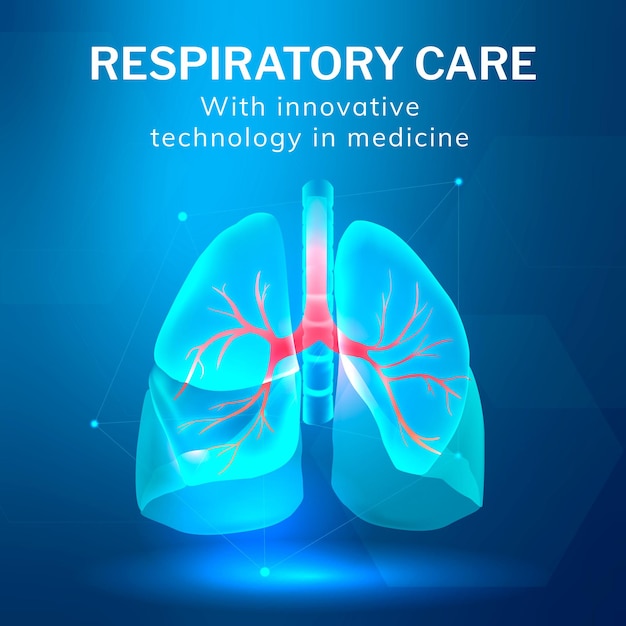Advancements in Respiratory Technology: Improving Diagnosis and Treatment
To address the growing need for efficient diagnosis and treatment, technological advancements in respiratory care have emerged. These innovations are revolutionizing the way specialists diagnose and treat respiratory conditions, paving the way for a brighter future for patients. In this article, we will explore some of the latest advancements and innovative technologies that are making a significant impact in respiratory care.
1. Diagnostic Algorithms
Artificial intelligence (AI) and sophisticated algorithms are transforming the diagnostic process for respiratory diseases. Intelligent machines can now analyze breathing sounds and interpret pulmonary test results accurately. Early detection is crucial in lung cancer treatment, and AI-powered algorithms have shown promising results in identifying malignant lung nodules. Researchers at Northwestern Medicine found that these algorithms can process chest scans, flag potential issues, and alert technicians and doctors remotely, saving time and enabling prompt treatment initiation.
2. Smart Inhalers
Inhalers are a vital tool for administering medications to respiratory disease patients, with nearly 90% of prescribed medications being delivered through inhalers. Smart inhalers, embedded with AI technology, are revolutionizing the way patients manage their conditions and providing valuable data for doctors. These devices can collect data and monitor a patient’s condition, alerting users to potential environmental triggers and reminding them to take their medication on time. The data collected by smart inhalers enables clinicians and doctors to gain a better understanding of each patient’s unique needs.
3. Wearable Devices
One of the significant challenges in respiratory care is ensuring patient adherence to treatment plans. Not all patients adhere strictly to their prescribed medication schedules, leading to suboptimal outcomes. Wearable devices, such as smart shirts or stickers worn on the body, are addressing this issue by monitoring patients and providing reminders for timely treatment. These devices help patients stay on track with their medications and improve overall treatment compliance.
4. Breath Measuring Technologies
Breath measuring technologies are at the forefront of respiratory care advancements. These technologies utilize innovative algorithms to analyze breath patterns and provide valuable insights into a patient’s respiratory health. By measuring various parameters such as breath rate, volume, and flow, these devices can detect abnormalities and track changes in lung function over time. This information is invaluable in diagnosing and managing respiratory conditions.
5. Telemedicine and Remote Monitoring
Telemedicine and remote monitoring have gained significant traction in the field of respiratory care, especially in light of the COVID-19 pandemic. These technologies allow doctors to remotely monitor patients’ respiratory health and provide virtual consultations, reducing the need for in-person visits. Remote monitoring devices, such as portable spirometers, enable patients to measure their lung function at home and share the data with their healthcare providers. This real-time monitoring promotes early intervention and personalized treatment plans.
6. Virtual Reality Therapy
Virtual reality (VR) therapy is emerging as a promising tool in respiratory rehabilitation. By immersing patients in virtual environments, VR therapy can help improve lung function, reduce anxiety, and enhance overall respiratory health. VR simulations can simulate various scenarios, such as breathing exercises and outdoor activities, allowing patients to practice and strengthen their respiratory muscles in a controlled setting.
7. Artificial Lungs
Artificial lungs, also known as extracorporeal membrane oxygenation (ECMO) devices, provide temporary respiratory support to patients with severe respiratory failure. These devices function as an external lung, removing carbon dioxide and infusing oxygen into the bloodstream. Artificial lungs have revolutionized the treatment of respiratory failure, offering a lifeline to patients awaiting lung transplants or recovering from acute respiratory distress syndrome (ARDS).
8. Personalized Medicine
Advancements in genomic research and personalized medicine hold great promise for respiratory care. By analyzing an individual’s genetic makeup, doctors can tailor treatment plans to the patient’s specific needs. This approach allows for more targeted therapies and improved treatment outcomes. Genetic testing and precision medicine are transforming the landscape of respiratory care, offering new avenues for personalized treatment strategies.
9. Mobile Apps for Self-Management
Mobile applications are empowering patients to take control of their respiratory health through self-management. These apps provide educational resources, medication reminders, symptom trackers, and breathing exercises, enabling patients to actively participate in their treatment plans. By promoting self-care and fostering patient engagement, mobile apps are facilitating better disease management and improved quality of life for respiratory disease patients.
10. Nanotechnology
Nanotechnology is opening new possibilities in respiratory care, particularly in drug delivery systems. Nanoparticles can be engineered to target specific areas of the respiratory system, enhancing the efficacy of medications and reducing potential side effects. These nanoparticles can deliver drugs directly to the affected lung tissue, bypassing other organs and minimizing systemic exposure. Nanotechnology-based drug delivery systems have the potential to revolutionize respiratory treatment by improving drug delivery precision and therapeutic outcomes.
11. Artificial Intelligence in Pulmonary Function Testing
Artificial intelligence is also making significant strides in pulmonary function testing. AI algorithms can analyze spirometry results and interpret lung function parameters, assisting clinicians in diagnosing and monitoring respiratory conditions. These algorithms can detect abnormalities and trends, providing valuable insights into disease progression and guiding treatment decisions. AI-powered pulmonary function testing is streamlining the diagnostic process and enhancing patient care.
12. Robotics in Thoracic Surgery
Robotic-assisted thoracic surgery is revolutionizing the field of respiratory surgery. Robotic surgical systems offer enhanced precision, dexterity, and visualization, enabling surgeons to perform complex procedures with minimal invasiveness. These advancements result in reduced postoperative pain, shorter hospital stays, and faster recovery times for patients. Robotic surgery is transforming thoracic procedures, including lung resections and tumor removals, leading to improved patient outcomes.
In conclusion, technological advancements in respiratory care are revolutionizing the diagnosis and treatment of respiratory diseases. From diagnostic algorithms and smart inhalers to wearable devices and virtual reality therapy, these innovations are improving patient outcomes and quality of life. With ongoing advancements in personalized medicine, nanotechnology, and artificial intelligence, the future of respiratory care looks promising. By harnessing the power of technology, we can continue to provide better care and support for patients battling respiratory illnesses.
